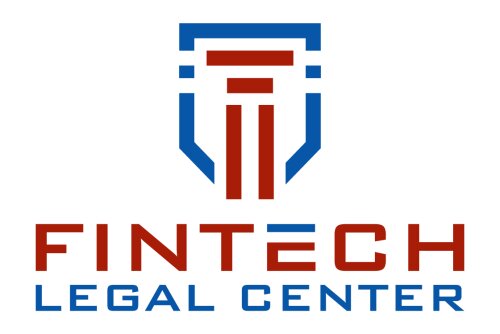Best Public-Private Partnerships (PPP) Lawyers in Tallinn
Share your needs with us, get contacted by law firms.
Free. Takes 2 min.
List of the best lawyers in Tallinn, Estonia
About Public-Private Partnerships (PPP) Law in Tallinn, Estonia
Public-Private Partnerships (PPP) in Tallinn, Estonia, are cooperative arrangements between government bodies and private sector entities designed to finance, build, and operate projects that serve the public interest. PPPs are increasingly popular in Estonia, particularly in areas such as infrastructure development, transportation, public services, and urban development. The legal framework for PPPs provides clear guidelines for risk-sharing, contractual terms, and project implementation, ensuring mutual benefits for both public authorities and private participants. Tallinn, as the capital city, is a focal point for PPPs and adheres to national as well as European Union standards in structuring and managing these partnerships.
Why You May Need a Lawyer
Legal assistance is essential when navigating PPPs in Tallinn. Here are common situations where you may require a lawyer:
- Drafting or reviewing complex PPP agreements to safeguard your interests.
- Interpreting and complying with relevant Estonian and EU laws and regulations.
- Participating in competitive tendering or bidding processes for PPP contracts.
- Negotiating terms with local authorities or private partners.
- Managing disputes and claims arising during the project lifecycle.
- Ensuring regulatory approvals and permits are in place.
- Advising on financing, risk allocation, and project structuring.
- Guidance on tax implications and public procurement procedures.
- Auditing compliance with anti-corruption and transparency requirements.
Local Laws Overview
The legal landscape for PPPs in Tallinn is shaped by both Estonian national law and European Union regulations. Key legislation includes the Estonian Public Procurement Act, which establishes procedures and requirements for government contracts, and the Obligations Act, governing contract law and partnership terms. Public procurement must adhere to principles of transparency, equal treatment, and competition. Besides, PPP projects often require compliance with sector-specific regulations (such as construction, transport, or healthcare). Both public and private partners are also subject to anti-corruption laws and audit requirements. Any PPP in Tallinn may be additionally regulated by municipal statutes and city guidelines, reflecting Tallinn's particular development priorities and standards.
Frequently Asked Questions
What is a Public-Private Partnership (PPP)?
A PPP is a legally binding cooperation between a public sector authority and a private company for the purpose of providing public services or developing infrastructure projects. Both parties share resources, risks, and rewards.
Are PPPs common in Tallinn, Estonia?
Yes, PPPs are increasingly utilized in Tallinn, especially in sectors such as transport, urban development, water management, and energy. The city actively seeks private partners to enhance public services and infrastructure.
What laws govern PPPs in Tallinn?
The main legal instruments are the Estonian Public Procurement Act, the Obligations Act, and various sector-specific regulations. EU laws on public procurement and competition also apply.
Can foreign companies participate in PPP projects in Tallinn?
Yes, foreign companies are eligible to participate, provided they comply with Estonian laws and procurement procedures. Certain requirements regarding qualifications, financial stability, and experience may apply.
How are risks allocated in a PPP?
Risks are typically distributed based on the capacity of each party to manage them. Agreements will specify responsibility for financial, construction, operational, and legal risks.
What is the typical duration of a PPP project?
PPP agreements are usually long term, ranging from 10 to 30 years, depending on the project type, complexity, and investment return considerations.
How are disputes resolved in PPP projects?
Dispute resolution mechanisms are set out in the PPP contract and may include negotiation, mediation, arbitration, or, as a last resort, litigation in Estonian courts.
Are there transparency requirements for PPPs?
Yes, Estonian law mandates transparent tendering processes, publication of key contract terms, and periodic reporting to prevent corruption and mismanagement.
Do PPP projects require local government approval?
Most PPPs in Tallinn require approval from the relevant city authorities and sometimes from national government agencies, depending on the scope and value of the project.
What should I consider before entering a PPP agreement?
Consider legal compliance, financial obligations, risk allocation, duration, termination clauses, dispute resolution, and your partner’s reputation and experience.
Additional Resources
- Estonian Ministry of Finance - PPP Policy and Guidance
- City of Tallinn - Department of Urban Planning and Public Procurement
- Estonian Chamber of Commerce and Industry
- Legal professionals specializing in contracts, procurement, and public sector projects
- European PPP Expertise Centre (EPEC) for guidance on EU standards
Next Steps
If you need legal assistance with a PPP in Tallinn, first gather all relevant documents, project details, and correspondence. Identify your specific legal questions or concerns. Seek out a local lawyer or law firm with expertise in public procurement and PPPs in Estonia. Arrange a consultation to review your case and receive tailored advice. Acting early and securing qualified legal support will help ensure your PPP project is compliant, well-structured, and protected against foreseeable risks.
Lawzana helps you find the best lawyers and law firms in Tallinn through a curated and pre-screened list of qualified legal professionals. Our platform offers rankings and detailed profiles of attorneys and law firms, allowing you to compare based on practice areas, including Public-Private Partnerships (PPP), experience, and client feedback.
Each profile includes a description of the firm's areas of practice, client reviews, team members and partners, year of establishment, spoken languages, office locations, contact information, social media presence, and any published articles or resources. Most firms on our platform speak English and are experienced in both local and international legal matters.
Get a quote from top-rated law firms in Tallinn, Estonia — quickly, securely, and without unnecessary hassle.
Disclaimer:
The information provided on this page is for general informational purposes only and does not constitute legal advice. While we strive to ensure the accuracy and relevance of the content, legal information may change over time, and interpretations of the law can vary. You should always consult with a qualified legal professional for advice specific to your situation.
We disclaim all liability for actions taken or not taken based on the content of this page. If you believe any information is incorrect or outdated, please contact us, and we will review and update it where appropriate.















